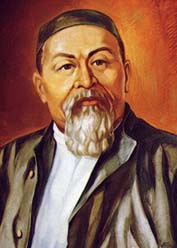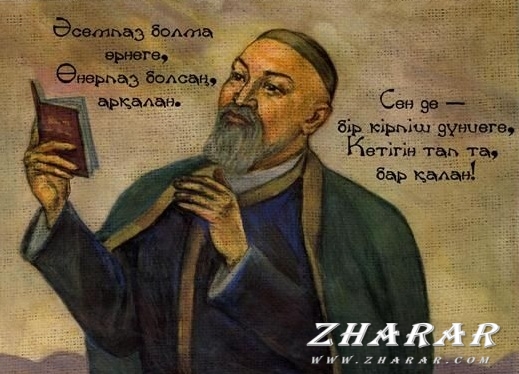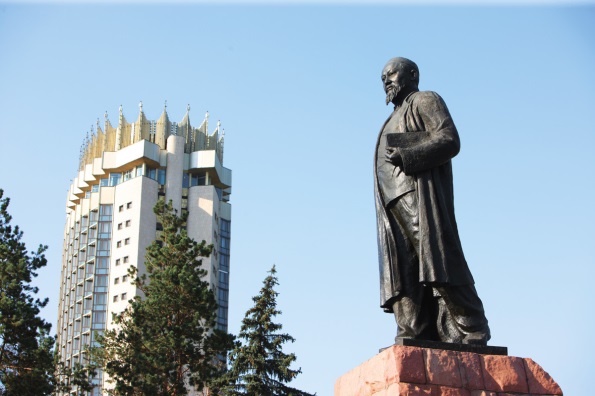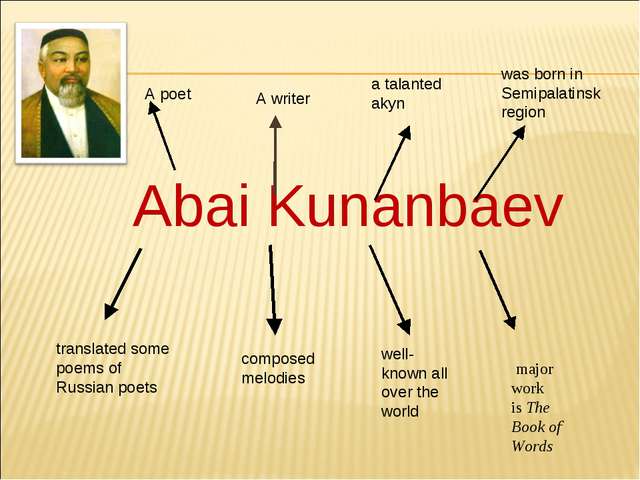|
LISTENING and READING
TASKS:
Listen and read the text
quickly. What interesting facts about a great person have you
learnt?
|
Date
|
Facts
|
|
1845
|
He was born near
Semipalatinsk
|
|
|
|
|
|
|
|
|
|
|
|
|
|
|
|
|
|
|
|
|
|
While-reading
stage.
Students
move their eyes over the text quickly (3 minutes). Then they close
the book. After that students call out words, phrases they remember
from the text, note them. Students work in pairs (1 minute)
discusses what the text is
about.
Discussion
Director(Interpersonal
Intelligence).
Task: Lead the discussion. Prepare 2
open-ended and thought-provoking questions about the story that
your group might want to discuss. Help others talk about the main
idea, help them share their thoughts and
feelings.
Descriptors:
1. Write 2 open-ended
questions.
2. Write your responses to
these questions.
3. Keep the discussion
going
Options
1. Write more than 2
questions.
2. Think of new way to present
your work. (E.g. quiz).
Here are some
ideas:
Passage
Picker(Body-Kinesthetic
Intelligence).
Task: Choose a paragraph that you
think your group would like to re-read.
Descriptors:
1. Choose an interesting or
important paragraph and write down its
location.
2. Read passage aloud yourself
(using body
language), or ask someone else to read
it, or ask the group to read it silently and then
discuss.
Options
Write why you have chosen this
paragraph.
Possible reasons for
selecting the paragraph:
-
important to
text
-
surprising
-
makes you
think
-
well
written
-
confusing
-
interesting
Word Wizard
(Verbal-linguistic
Intelligence).
Task: Find in the text 5 words or
phrases that you had difficulty reading or understand in the
story.
Descriptors:
1. Write 3 unfamiliar or
puzzling words in a full sentence. (You may also find familiar word
repeated a lot).
2. Write the location of the
word (e.g. Pg.58 § 4).
3. Try and guess the meaning
from context.
3. Find a dictionary
definition.
Options
1. Find more that 3 words or
phrases.
2. Make a list of synonyms and
antonyms.
3. Create new sentences with
these words.
4. Use online dictionary to
find out the pronunciation of the words.
Summariser(Intrapersonal
Intelligence).
Task: Prepare a brief description of
the key points in the story.
Descriptors:
1. Write at least 4
sentences.
2. Write in your own
words.
3. Present the important
events in a logical order.
Options
1. Include the meaning of the
story.
Illustrator(Visual-spatial
Intelligence).
Task: Draw a picture related to the
story.
Descriptors:
1. Prepare an
illustration.
2. Share your drawing and ask
group members what he/she thinks you have drawn and how it is
connected with the story.
3. Explain your
illustration.
Options
You can draw a character, a
moment or a setting.
Connector(Logical-mathematical
Intelligence).
Task: Find a part of the story that
reminds you of something you have seen, heard, done or read about
before.
Descriptors:
1. Write at least 2 sentences.
Make connections with your own experience, another text or the
world.
2. Give evidence from the book
to support your connection.
Options
Use graphic organiser to
record and compare your connections to what happened in the
text.
Character
Analyser(Logical-mathematical
Intelligence).
Task: Share observations about the
main characters.
Descriptors:
1. Select 2 main characters
and using adjectives describe their
characteristics.
2. Write at least 4
sentences.
Consider:
Options
Put yourself in the
character's shoes and explain the story from his (her) point of
view.
Post-reading
stage.
Next, students
complete peer-evaluation
form.
Ex.4 – 5
p.64
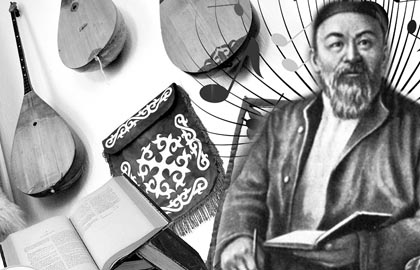
What other Kazakh writers
and poets do you know?
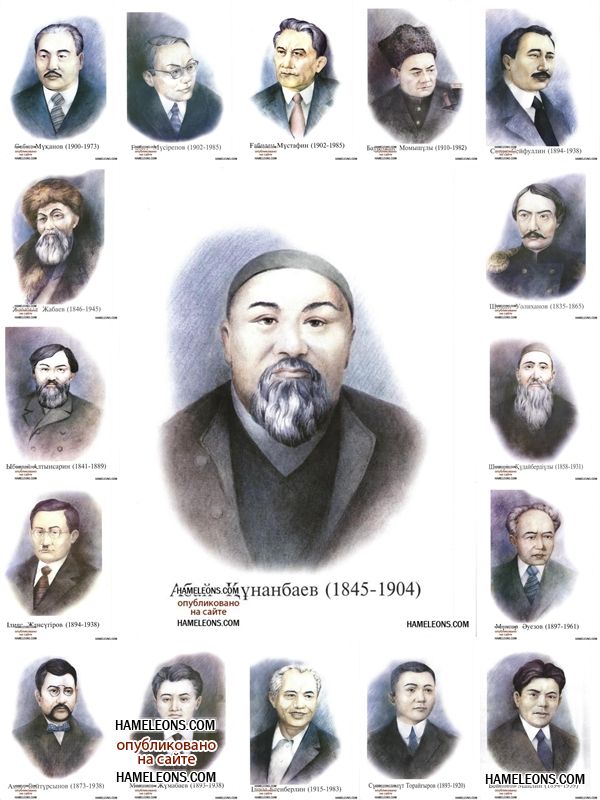
|







